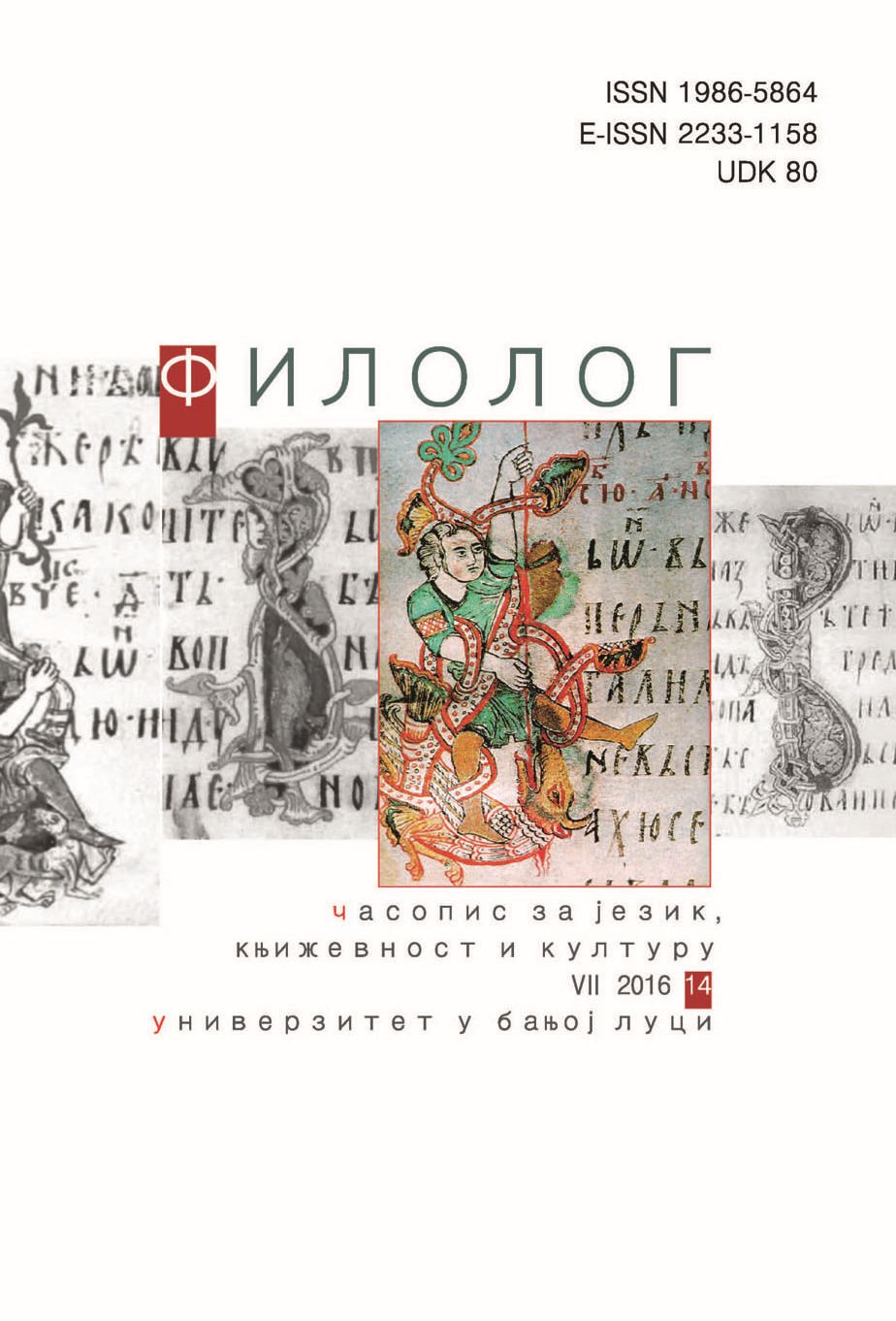Контрастивна анализа реализација слободног неуправног говора у шпанском и српском језику
Contrastive Analysis of the Realisations of Free Indirect Speech in the Spanish and Serbian Languages
Author(s): Marijana AleksićSubject(s): Foreign languages learning, South Slavic Languages, Philology, Translation Studies
Published by: Филолошки факултет Универзитета у Бањој Луци
Keywords: free indirect speech; ways of quoting someone else’s words; polyphony; translation;
Summary/Abstract: The free indirect speech is a specific linguistic and stylistic device that structurally presents two basic forms of quoting someone else’s words, direct and indirect ones. Due to such a quality, the voices of the narrator and protagonist are united in a narrative line. Thus, various stylistic effects, such as representations of emotional states of characters, memories or dreams, are realised. The paper deals with some basic features of the free indirect speech in the Spanish and Serbian languages. This procedure does not have same manifestations in all languages, with the differences being best reflected in translations. For that reason, the examples are taken from the Serbian translations of Spanish novels. When the two languages are concerned, the major difference in the realisation of free indirect speech is the absence of the consecutio temporum (sequence of tenses) rule in Serbian.
Journal: Филолог – часопис за језик, књижевност и културу
- Issue Year: 2016
- Issue No: 14
- Page Range: 243-256
- Page Count: 14
- Language: Serbian

